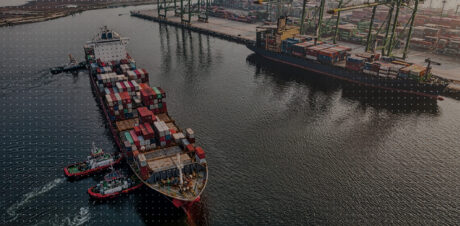As Lebanon faces a devastating economic crisis, authorities from multiple jurisdictions are coordinating efforts to track the movement of funds and assets linked to the governor of the Central Bank of Lebanon, commonly known as Banque du Liban (BdL), Riad Salame.
Several investigations into allegations against Salame are occurring simultaneously, including money laundering, embezzlement, and the misuse of BdL funds — the latter of which has potentially helped him grow his assets abroad, some reports claim.
Salame denies any wrongdoing, claiming on multiple occasions that he amassed his wealth before he became the BdL governor and calls the numerous reports alleging criminal misconduct a “smear campaign.”
As part of an investigation into Salame, we found dozens of companies linked to him and his family, in addition to global real estate holdings. Some of these companies have not been publicly reported on and began operations well after Salame began his tenure as BdL governor in 1993. The companies we found could have been and continue to be at risk of being used by Salame to either protect his wealth from the volatility of Lebanon’s economy or to launder funds from Lebanon’s Central Bank, if the allegations against him are true.
Lebanon’s economic crisis
The economic crisis in Lebanon has been years in the making but came to a head about 18 months ago as several issues coalesced. Unemployment in the productive sector has been at a virtual standstill and uncontrolled government debt led to Lebanon defaulting on a public loan for the first time in history last March.
Critics blame public corruption and political gridlock in general, but Salame’s mismanagement in particular. Under the direction of Salame, BdL applied questionable policies, most notably “financial engineering,” in which new loans are taken out to pay for existing debts, according to a 2018 financial report. A former BdL vice governor described the policy of financial engineering, which contributed to Lebanon’s debt crisis, as a “ponzi scheme.”
The dual tragedies of the deadly Beirut port explosion in August 2020 and the COVID-19 pandemic, which has been devastating for Lebanon, only aggravated the economic collapse.
The severity of the crisis can be best grasped by looking at the precipitous drop in the value of the Lebanese lira. Between late 2019 and March 2021 the lira lost about 85 percent of its market value, despite the official policy of pegging the lira to the US dollar at a rate of 1508:1. Lebanon’s minimum wage of LL675,000 per month — worth about $450 at the official exchange rate — is now worth only $68 on the market.
Among the government’s responses to slow the rapidly deteriorating economic situation and avoid a run on the banks was to bar the withdrawal of US dollars from Lebanese bank accounts that were deposited before the crisis. Individuals could still withdraw Lebanese lira, but below market rate. The Central Bank began relaxing some of the restrictions on withdrawals for local currency in April 2020, but most Lebanese still have funds — either foreign or local — locked in their accounts.
In early 2020, BdL asked Lebanese banks to review international transfers of funds by politicians and government employees between Oct. 17, 2019 and Dec. 31, 2019, suggesting a closer look at possible moves by elites to protect their wealth from Lebanon’s volatile economy.
Investigations and allegations against Salame
Against the backdrop of the economic crisis, Riad Salame and his brother Raja are the subjects of several recently-filed criminal complaints.
The first and most widely reported investigation into Salame began in Switzerland as early as November 2020, according to a leaked letter from the Swiss attorney general. The letter — sent to request legal assistance from Lebanese authorities — alleges that Salame and Raja carried out embezzlement schemes “exceeding $300 million…to the detriment of Banque du Liban” through the use of multiple Switzerland-based companies.
The Swiss letter alleges that BdL paid brokerage fees to the Swiss bank account of Forry Associates Ltd., a BVI-based company controlled by Raja and registered in 2001. The total amount transferred to Forry was $333 million, with more than $7 million being transferred to other offshore accounts controlled by Salame.
In January 2021, A Lebanese prosecutor charged Salame with dereliction of duty. The prosecutor alleges that Salame channeled $5 to $7 million, originally meant for essential goods and services, to the black market in an attempt to increase its value — only for the money to be ultimately squandered.
Most recently, in April 2021, a French anti-corruption NGO submitted a complaint in France alleging suspicious real estate purchases by Salame and his associates. The complaint outlines assets including real estate and companies used to divert funds out of Lebanon, the total of which could be in the millions in France alone and hundreds of millions across Europe.
As it stands in May 2021, criminal complaints have been filed in the UK, France, and Switzerland — where there is an active investigation — in addition to Salame being formally charged in Lebanon.
Offshores and global property holdings
Our public records analysis uncovered dozens of companies linked to Salame, Raja, as well as Salame’s children, spouse, and nieces and nephews. Several of the more than thirty companies we found are involved in real estate holdings and development, tourism, and general investments. They span the UK, Cyprus, France, Lebanon, Germany, Malta, and Luxembourg.
Previous investigations from Sayari have highlighted the powerful role of family in private businesses in the Middle East — an important point to consider when investigating MENA-based networks. Oftentimes immediate and sometimes extended family members occupy high-level positions or collectively hold a majority of shares, even when the company is international.
In the UK, where authorities are considering an investigation into Salame, he, his brother Raja, and Raja’s children control at least five companies, four of which are used for real estate development and management.
A snapshot from Sayari Graph showing the connections among Raja, Raja’s son, and their UK property holdings.
Fig. 1: A snapshot from Sayari Graph showing the connections among Raja, Raja’s son, and their UK property holdings.
Salame’s family owns multiple, high-value pieces of property in the UK, an aspect of Salame’s wealth that has been previously reported on. An open-source search reveals that a studio in one of the buildings where Raja owns a flat, through his control of Black River Properties Limited, can be purchased for as much as £550,000 (~$769,654).
By using Graph analytics and incorporating multiple data sources, we also linked Raja to a previously unreported offshore company in Cyprus — Artar Investors Holding Limited (Artar). Artar was registered Sep. 26, 2018, according to the Cyprus corporate register. Raja is listed as a shareholder dating back to Dec. 31, 2018, which shows that the Salame family, or at least Raja, was involved with offshore entities outside of the 2002-2015 window alleged in the Swiss criminal complaint.
What’s more, Artar shows the propensity of the Lebanese elite to leverage offshores, and Cyprus in particular. Multiple Lebanese individuals are listed on Artar, including Carlos Ghosn — the former Nissan CEO who was arrested on multiple financial crime charges before fleeing from Japan to Lebanon in a musical instrument case.
Beyond allegedly hiding his wealth in offshore accounts, one of the biggest accusations against Salame is related to his real estate holdings and how they were obtained. The criminal complaint in France alleges that Salame and Raja amassed real estate assets in across Europe, including France, worth “hundreds of millions of euros” — a sum, the complaint claims, that would not be possible on a BdL governor’s salary.
Raja is the ultimate beneficial owner of France-based BS and SCI SB — companies registered on Dec 1. 2020 and Feb. 10 2021, respectively. The companies’ stated purpose is real estate acquisition and rental. Meanwhile Salame and his son, Nadi, control France-based Societe Germano-Pratine De Location (S.G.P.L) — also a real estate acquisition and rental company. S.G.P.L. was established Apr. 4, 2016, meaning that all of these companies were created well into Salame’s tenure as the governor of the Central Bank, with some as recently as 2021.
An S.G.P.L filing with the stated business purpose and address of one of the pieces of property in downtown Paris, 1.5 miles away from the Louvre.
Fig. 2: An S.G.P.L filing with the stated business purpose and address of one of the pieces of property in downtown Paris, 1.5 miles away from the Louvre.
It is unclear whether Salame broke any laws in the years he allegedly transferred millions of dollars outside of Lebanon, whether using BdL funds or not. However, it is clear from our findings that Salame and his family’s holdings abroad are significant. There are several companies that we did not mention here, including in Luxembourg, Germany, Malta, and Lebanon, some of which are also tied to real estate and tourism
Based on what we know from our own analysis and reporting from other sources, we likely found only a portion of Salame’s assets. The concurrent investigations into his holdings call for a closer look into his companies and real estate, much of which is still likely uncovered.



